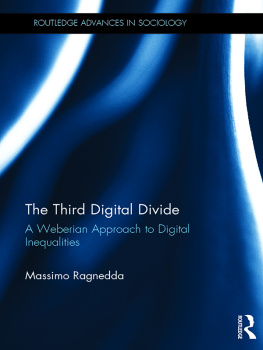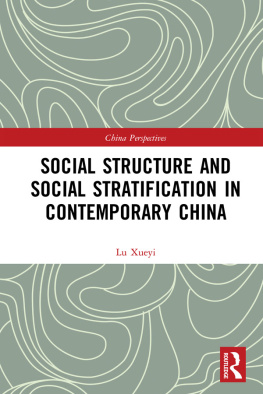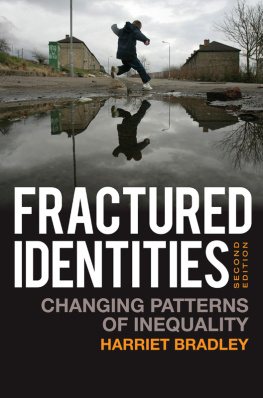STATE-SPONSORED INEQUALITY
The Banner System and Social Stratification in Northeast China
Shuang Chen
STANFORD UNIVERSITY PRESS
STANFORD, CALIFORNIA
Stanford University Press
Stanford, California
2017 by the Board of Trustees of the Leland Stanford Junior University. All rights reserved.
No part of this book may be reproduced or transmitted in any form or by any means, electronic or mechanical, including photocopying and recording, or in any information storage or retrieval system without the prior written permission of Stanford University Press.
Printed in the United States of America on acid-free, archival-quality paper
Library of Congress Cataloging-in-Publication Data
Names: Chen, Shuang, 1977 author.
Title: State-sponsored inequality : the banner system and social stratification in northeast China / Shuang Chen.
Other titles: Studies in social inequality.
Description: Stanford, California : Stanford University Press, 2017. | Series: Studies in social inequality | Includes bibliographical references and index.
Identifiers: LCCN 2016043178 (print) | LCCN 2016044315 (ebook) | ISBN 9780804799034 (cloth : alk. paper) | ISBN 9781503601635 (ebook) | ISBN 9781503601635 (e-book)
Subjects: LCSH: Social stratificationChinaManchuriaHistory19th century. | LandownersChinaManchuriaHistory19th century. | Land grantsChinaManchuriaHistory19th century. | WealthChinaManchuriaHistory19th century. | Manchuria (China)Social conditions19th century. | ChinaHistoryQing dynasty, 16441912.
Classification: LCC HN740.M35 C44 2017 (print) | LCC HN740.M35 (ebook) | DDC 305.5/1209518dc23
LC record available at https://lccn.loc.gov/2016043178
Typeset by Newgen in 10/14 Sabon
To the memory of my mother and to my father
CONTENTS
LIST OF ILLUSTRATIONS
Figures
Maps
Tables
ACKNOWLEDGMENTS
This book represents an intellectual endeavor to integrate quantitative and qualitative methods and produce a holistic understanding and history of human experience. It would not have been completed without the many teachers, colleagues, friends, and family who sustained my efforts across the years of research, writing, and rewriting. My first thanks go to the research group led by James Lee and Cameron Campbell. The book has benefited greatly from their collective work. I especially thank James Lee for his unfailing support of my career as a scholar. A great mentor and enthusiastic teacher, he broadened my horizon by guiding me to the field of social scientific history and constantly pushing me to reflect on methodological issues. It was James who first located and acquired the microfilm version of the Eight Banner household and land registers for Shuangcheng County and suggested them to me as a potential research topic. These registers were later transcribed into the China Multi-Generational Panel Dataset, Shuangcheng (CMGPD-SC). The three coders, Sun Huicheng, Jiyang, and Xiao Xing, diligently worked on transcribing the household and land registers into machine-readable form. Cameron Campbell wrote the original code used to process the raw data into a form that was amenable to analysis. A wonderful teacher, Cameron also taught me the techniques of data analysis through individual tutoring and spent enormous amount of time reading and commenting on the manuscript. Chen Weiran, Eric Li, Ren Yuxue, and Matthew Noellert provided me with companionship in studying the history of Shuangcheng and generously shared with me the materials they collected. Ren Yuxue, a specialist in the institutional history of the Qing dynasty Northeast China, also helped me with her knowledge of the larger institutional background as well as her focus on spatial patterns. Matthew Noellert, a historian on Land Reform and communist revolution, invited me to join his fieldwork in the former banner villages in Shuangcheng in summer 2013. Other colleagues and friends in the research group, Dwight Davis, Dong Hao, Liang Chen, Li Ji, Song Xi, Byung Ho Lee, Zang Xiaolu, Li Lan, Wang Linlan, and Lai Sze Tso, read and commented on various versions of the manuscript.
I am also indebted to the broader intellectual community in the United States, which offered me crucial support in the process of writing the book. Mark Elliott read the book manuscript and offered unwavering support when I needed it most. At the University of Michigan, Myron Gutmann opened my eyes by bringing me into a larger community of historical demography. Myron, Barbara Anderson, Pr Cassel, Ernest Young, and Kenneth Sylvester offered valuable comments and suggestions on the manuscript. Susan Leonard closely followed the project of CMGPD-SC and commented on my work. In the field of Chinese Studies, Joseph Esherick, Christopher Isett, Huaiyin Li, Daniel Little, Peter Perdue, Kenneth Pomeranz, William Rowe, Wang Feng, R. Bin Wong, Yunxiang Yan, and Elizabeth LaCouture read all or part of my work and had conversations with me at various stages of the project. Their insightful comments and thought-provoking questions greatly inspired my work. Various participants at my presentation to conferences such as the Social Science History Association and American Historical Association also offered valuable input on my papers, on which some chapters of the book are based. It is with deep gratitude that I acknowledge their help.
My teachers and friends in Asia also offered me unfailing support and companionship. The teachings of Luo Xin, Zhang Fan, and my other former teachers in Peking University shaped my passion for history and scholarly thinking. Li Bozhong, Ding Yizhuang, and Zhang Xiaoye helped me expand the scope of analysis in the book with their expertise in socioeconomic history, Eight Banners, and local histories. Qiu Yuanyuan and Yoshiki Enatsu inspired me with their works on manor lands in Beijing and Fengtian. Yoshiki Enatsu also graciously offered help in collecting Japanese scholarship on Shuangcheng. Lin Xingchen and Huang Yulin at the Academia Sinica helped me acquire archival sources from the collection of Neige da ku dangan.
My appreciation also goes to my colleagues at the University of Iowa. The Department of History provides me a wonderful intellectual home. Stephen Vlastos, Alyssa Park, James Giblin, Michaela Hoenicke-Moore, and Jaki Rand from history department and Newell Ann Van Auken from the Department of Asian and Slavic Languages and Literatures commented on various parts of my manuscript and offered tremendous moral support during the publication process. Outside Iowa, my friends in other academic disciplinesMeina Liu, Huijuan Zhao, Lan Yang, Hao Zhao, Dengfeng Sun, Qian Yu, Jie Zhou, and Guorong Zhuwere a constant source of support and inspiration with their caring hearts and passion for research.
My heartfelt thanks go to the following institutions and individuals for their support of my research: The First Historical Archives in Beijing, especially Wang Jinlong; Liaoning Provincial Archives and Liaoning Provincial Local Gazetteer Office, especially Gao Jing; Shuangcheng Municipal Archives, especially Jiang Mingshan and Xue Qi; Jilin Provincial Archives. Yin Wenhua and Guan Guoqing in Shuangcheng and Zhang Baohui, my friend at the University of Michigan with a Shuangcheng origin, offered great help to Matthew Noellert and me during our fieldwork.
Cynthia Col copyedited an early draft of the manuscript. Jenny Gavacs and Kate Wahl at the Stanford University Press guided me through the publication process. The two anonymous reviewers helped me refine my thesis with their insightful comments and suggestions. Ren Yuxue and Robert Shepard offered great help in creating the maps in the book. Che Tailai and Yu Meide gave me permission to use the cover image, and Jiang Mingshan, Zheng Mengnan, and Du Yue provided me tremendous help in obtaining the permission. I am grateful to all of them.
Next page




